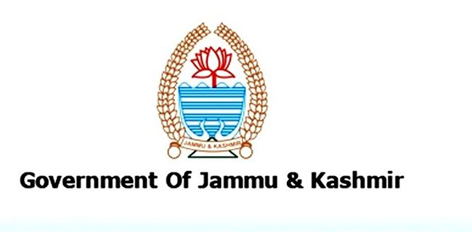*Elections to be held within 20 days
SEC to formally release list of reserved DDCs
Sanjeev Pargal
JAMMU, Jan 11: The Jammu and Kashmir Government today formally issued Reservation Rules for the posts of Chairpersons of the District Development Councils (DDCs) according 33 percent reservation to women while Scheduled Castes (SCs) and Scheduled Tribes (STs) will get reservation based on their population.
For reservation to women, the districts will be arranged alphabetically and every third district will be reserved for them, the Reservation Rules issued today by Secretary Rural Development Department Sheetal Nanda said.
Allocation of seats of the Chairpersons to be reserved for women shall be made on a three point roster system after arranging them alphabetically, Nanda said.
This means the districts falling alphabetically at Nos. 3, 6, 9, 12, 15 and 18 will be reserved for women.
“After framing of Reservation Rules, the State Election Commission (SEC) will formally issue the list of districts reserved for Women, SCs and STs,’’ official sources told the Excelsior.
They said election for the posts of Chairpersons of the DDCs will be held within 20 days from the date the order for reservation of Chairpersons is issued by the Election Authority.
Going by the population, sources said, two districts are likely to be reserved for SCs in Jammu region and three for STs including two in Kashmir division and one in Jammu.
However, there will be no reservation for SCs and STs within the 33 percent districts reserved for Women in the DDCs as has been the case in the territorial constituencies.
The Rules will be called the Jammu and Kashmir District Development Council (Reservation of Offices of Chairpersons) Rules, 2021.
As per the Reservation Rules: “the offices of Chairpersons of the DDCs shall be reserved for SCs and STs and shall bear, as nearly as may be, the same proportion to the total number of such offices in the DDCs as the population of SCs and STs in the Union Territory by applying the principles of mathematic round off with part fraction of 0.5 and above being rounded off to one and part fraction below 0.5 being ignored for each DDC separately’’.
However, the seats reserved for one term of the DDCs for five years will not be reserved for the next term.
“The offices of Chairpersons of the DDCs shall be rotated in such a manner that as far as may be practicable, the territorial constituencies reserved for Scheduled Castes, Scheduled Tribes and Women in the previous elections shall not be reserved for them in the subsequent elections,’’ the Rural Development Department order read.
It said the number of seats of Chairpersons to be reserved for SCs and STs shall be allotted to different DDCs on the basis of population of SCs and STs in the DDCs in the descending order i.e. from amongst all DDCs in Jammu and Kashmir, the DDCs having largest population of STs shall be allotted to ST category and the DDCs having largest population of SC population will be given to the SC category.
Notification of Reservation Rules by the Rural Development Department which will be followed by identification of the districts reserved for SCs, STs and Women, will lead to election of Chairpersons of the DDCs and their formal constitution.
Jammu and Kashmir has a total of 20 DDCs—10 each in Jammu and Kashmir divisions. Each DDC has 14 elected members totalling 280—140 in the each division.
In Jammu region, the Bharatiya Janata Party (BJP) is in a position to get its Chairpersons elected in six DDCs including Jammu, Samba, Kathua, Udhampur, Doda and Reasi where it has secured majority. The BJP has won 13 seats each in Samba and Kathua districts, 11 each in Jammu and Udhampur districts, eight in Doda and seven in Reasi district.
Rest of the four districts—Kishtwar, Ramban, Rajouri and Poonch have thrown hung verdict with no party able to secure clear majority but National Conference and Congress have joined hands in Ramban district where they together have eight seats. The National Conference also has six seats in Kishtwar district and confirmed support of one Independent MLA, thus, requiring just one more member to secure majority. Eight Independents have won in Poonch followed by Congress four and National Conference two. NC has five seats in Rajouri, Congress and BJP three each while Apni Party, PDP and Independent have one seat each.


